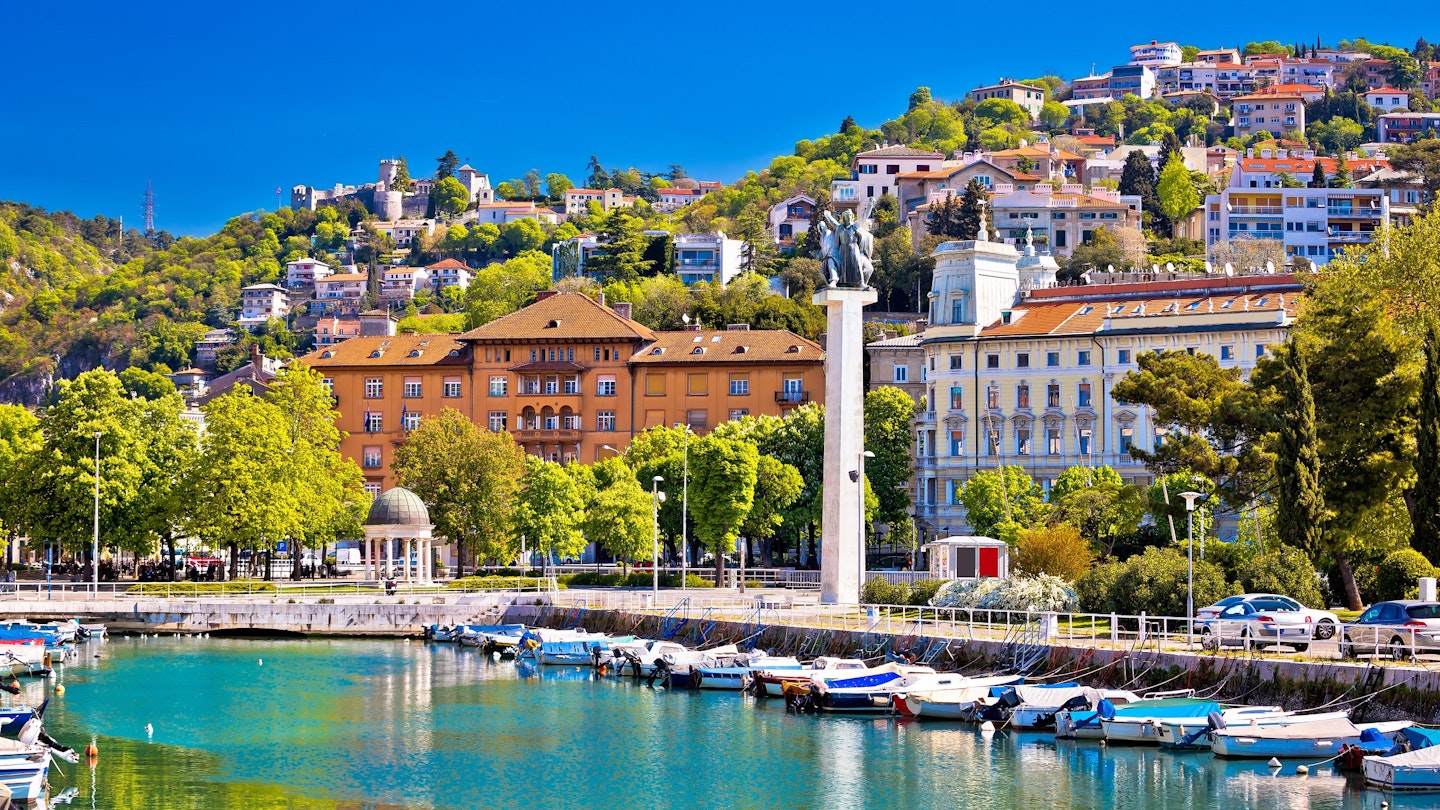Rijeka, the European Capital of Culture for 2020, sits at the mouth of a sheer, limestone gorge where the Rječina River meets the northern Adriatic Sea. It is Croatia’s third-largest city and its largest port. Defined by its open character and progressive spirit fashioned by waves of immigrants, nationalities, and layers of ethnicities, its status as this year’s Capital of Culture honors its multilayered identity. The accompanying year-long calendar of events—a program named “Port of Diversity”—kicked off in February, just as the city’s famously flamboyant Carnival celebrations were revving into high gear.
“At times it seems Rijeka—which is described as post-industrial, post-socialist, post-Yugoslav, post-rock—is permanently gazing into its past,” says Vjeran Pavlaković, a professor in the Department of Cultural Studies at the University of Rijeka. “However, the city willingly confronts its complexities with a bubbling energy and unique bravado, which makes it a fascinating place to visit for those interested in cultural heritage, edgy art, and dynamic natural and architectural landscapes.” Here are the best things to do and see when you’re visiting Rijeka.
1. Museums
Start on the western side of town with a visit to the Museum of Modern and Contemporary Art, which was moved into a repurposed industrial compound in 2017. Today, the space stores around 8000 pieces dating from the late 1800s until the present day, and hosts a rotation of cutting-edge exhibitions and installations. The Maritime and History Museum was built as a governor’s palace during the Austro-Hungarian era. This historic structure casts a wide net, including everything from art to naval curiosities and photography.
2. The National Theatre
From the museum, cross the city’s main pedestrian avenue—the cafe- and boutique-lined street named Korzo—past the 4th-century Roman Arch, and walk toward the sea to the neo-baroque Croatian National Theatre Ivan Zajc. Built and opened in the late 19th century, this venue continues to be the city’s main stage for world-class ballet, opera, and drama.
3. Views from Trsat Castle
Take a walk to the village-like neighbourhood of Trsat. From the city’s Titov Square, take the Petar Kružić Stairway, which doubles as a pilgrims’ route to the Our Lady of Trsat Church and the Franciscan Monastery. At the top, cross a little square and pass by cafes to reach the district’s main sight: Trsat Castle.
This medieval fortress sits on a bluff looking out across the sea. This vantage point—associated with Rijeka’s earliest development, recorded as early as the 8th century—provides expansive views of the region, including Kvarner Bay’s string of islands and Istria. Consequently, it is the perfect spot to soak in the scene with a drink at the castle’s Vintage Bar.
4. Local markets and restaurants
Browse the outdoor City Market (Placa), filled with stands of vegetables, fruits, and flowers, complemented by the smell of roasting coffee. The indoor pavilions are dedicated to meat and seafood vendors. You may also enjoy a meal at one of the nearby restaurants such as Bistro Mornar, featuring a rustic dining room, outside terrace, and tables lining the street. The wide menu changes with the seasons and features options from the day’s catch, including seafood delights such as mussels, grilled lobster, or sea bass served with sautéed Swiss chard and potatoes.
5. Nightlife
Rijeka is a sociable city with a fun-loving nature. Start your evening at the riverside bar Pivnica Cont, located at the north end of the Hotel Continental; it produces its own beer and serves top-end pub fare including pulled-pork sandwiches and fish and chips. From there, it’s a 300m walk north to Život. Decorated in Yugoslav memorabilia, the club is one of the best spots in town to hear Rijeka’s thriving DJ scene. A solid, rotating lineup of local and international spin artists keeps the beat going until 6 am on Fridays and Saturdays.




